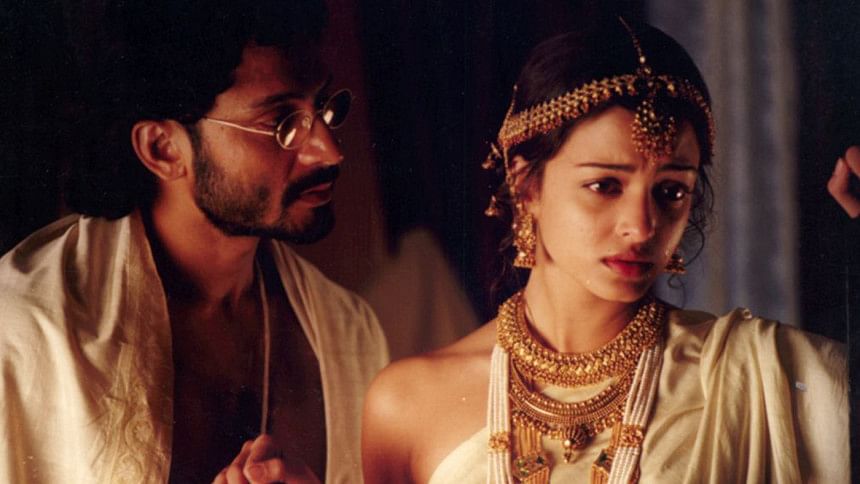Four contemporary Tagore adaptations that are a must watch

Rabindranath Tagore's works continue to amaze literary enthusiasts even today and the Nobel laureate has been a major source of inspiration for several filmmakers, who have developed their own unique touch by traversing his works. On his birth anniversary, we look back at four such adaptations that make Tagore's works truly immortal.

Chokher Bali (2003)
Rituparno Ghosh's ''Chokher Bali'' is the first film that comes to our mind when we think of successful adaptations, marking a new era in the history of Tagore adaptations in Bengali cinema. The film, released nearly a century after the novel was written, is a brilliant telling of the story, which was way ahead of its time for glorifying the role of a widow with spiritual and physical autonomy.
Set against the backdrop of women's education and the Swadeshi movement, this film was critically acclaimed for its representation of the maestro's works on the big screen. Ghosh not only preserved the characters' complexities, but also allowed the audience to experience the period through his meaningful cinematic composition.
Stories by Rabindranath Tagore (2015)
Anurag Basu's ''Stories by Rabindranath Tagore'' is a Netflix series featuring strong female characters. Basu gave his own interpretation of the stories and added just the right amount of classic Rabindra Sangeet in order to make the younger generation more aware of Tagore's revolutionary views.
While successfully recreating colonial Bengal in the production, the aesthetics of each episode go well beyond the screen, keeping one engaged to finish the entire season in one go. Set in twentieth century undivided Bengal, the show features a politically volatile Kolkata where protagonists arrive from their diverse rural, social and cultural backgrounds. One would particularly enjoy the unconventional portrayal of women, as they have been showcased to be strong and independent–defying gender stereotypes.

Chitrangada: The Crowning Wish (2012)
This Rituparno Ghosh directorial portrays the tale of a choreographer who is struggling with their gender identity. The film is loosely based on Tagore's play ''Chitra'', which highlighted the story of Chintrangada, a character from the Mahabharata. Ghosh was critically acclaimed for his portrayal of the trans perspective, and this film stars the director himself as the protagonist Rudra Chatterjee.
It is structured as a series of events from the past and present, primarily through Rudra's interactions with his counsellor in the hospital. The film draws a parallel comparison with the iconic character of Chitrangada, a Manipuri princess who was brought up as a man and warrior, following her father's wish.
Shasti (2004)
Directed by Chashi Nazrul Islam, this film is an adaptation of Tagore's story of the same name. It revolves around the life of newly wed Chandora, and the responsibilities she must endure as a wife. Unlike most of Tagore's works highlighting fierce, independent women, this film portrays a truly male-dominated era, which can be lauded as the correct representation of the society at that time.
It shows that women are blamed and punished for everything, even at their husband's discretion. When Dukhiram had an argument with his wife, he accidentally killed her. In order to save him from prosecution, Chhidam, his younger brother, blames his wife Chandora for the accident. It is one of the few Bangladeshi films embodying the Nobel laureate's works, and does justice to the classical story.

 For all latest news, follow The Daily Star's Google News channel.
For all latest news, follow The Daily Star's Google News channel. 








Comments